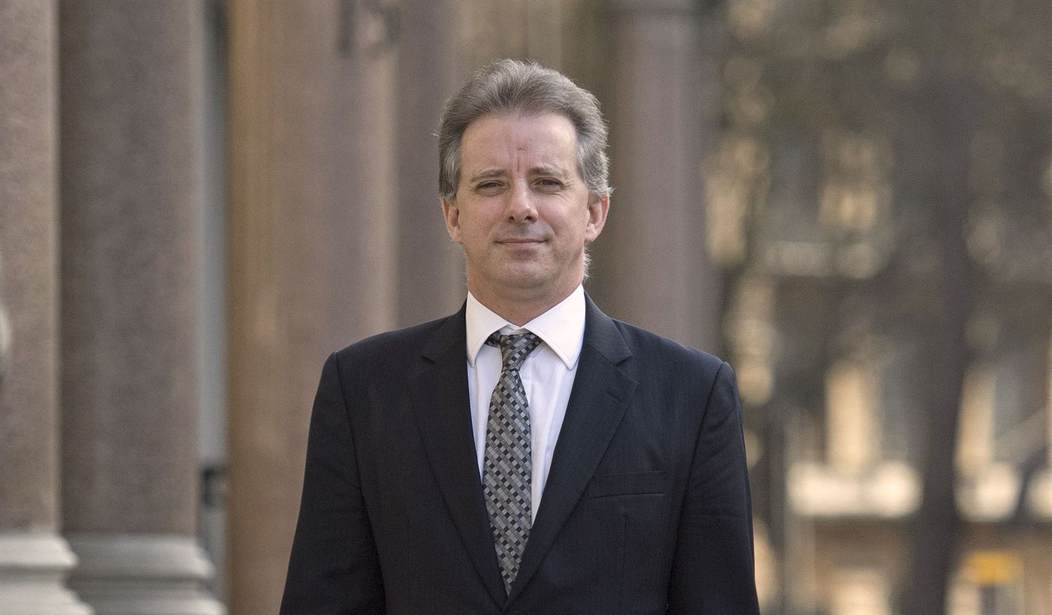Gee, I wonder what this could mean? The FBI’s arrest of a key contributor to the Christopher Steele dossier that touched off the Russiagate hysteria might suggest that John Durham has begun to move his special counsel probe into the courts:
Federal authorities on Thursday arrested an analyst who in 2016 gathered leads about possible links between Donald J. Trump and Russia for what turned out to be Democratic-funded opposition research, according to people familiar with the matter.
The arrest of the analyst, Igor Danchenko, is part of the special counsel inquiry led by John H. Durham, who was appointed by the Trump administration to scrutinize the Russia investigation for any wrongdoing, the people said.
Mr. Danchenko, was the primary researcher of the so-called Steele dossier, a compendium of rumors and unproven assertions suggesting that Mr. Trump and his 2016 campaign were compromised by and conspiring with Russian intelligence officials in Moscow’s covert operation to help him defeat Hillary Clinton.
The people familiar with the matter spoke on condition of anonymity because the indictment of Mr. Danchenko had yet to be unsealed. A spokesman for Mr. Durham did not respond to a request for comment.
Until we see an indictment, the meaning of this is impossible to know. It might be just a so-called process crime, perhaps getting caught in a material lie to investigators. That’s usually as much as special counsels ever get out of their investigations.
Still, the arrest is notable, especially with Steele himself attempting to rehab his dossier in recent weeks. He appeared on ABC for a special with George Stephanopoulos last month, appearing “defiant” in ABC’s description, to insist that Russia might still hold “kompromat” on Trump. “I stand by the work we did, the sources that we had, and the professionalism which we applied to it,” Steele insisted.
The FBI is less impressed with it, and even the NYT is skeptical these days:
F.B.I. agents interviewed Mr. Danchenko in 2017 when they were seeking to run down the claims in the dossier.
The interview suggested that aspects of the dossier were misleading: Mr. Steele left unclear that much of the material was thirdhand information, and some of what Mr. Danchenko — who was born in Russia but lives in the United States — had relayed was more speculative than the dossier implied.
What might make this different than the normal process-crime indictment is the discovery, first raised in Inspector General Michael Horowitze in 2019, that the Department of Justice had suspected Danchenko of being a Russian spy a decade earlier:
The inspector general report also said that a decade earlier, when Mr. Danchenko worked for the Brookings Institution, a prominent Washington think-tank, he had been the subject of a counterintelligence investigation into whether he was a Russian agent.
In an interview with The New York Times in 2020, Mr. Danchenko defended the integrity of his work, saying he had been tasked to gather “raw intelligence” and was simply passing it on to Mr. Steele. Mr. Danchenko — who made his name as a Russia analyst by exposing indications that the dissertation of President Vladimir V. Putin of Russia contained plagiarized material — also denied being a Russian agent.
“I’ve never been a Russian agent,” Mr. Danchenko said. “It is ridiculous to suggest that. This, I think, it’s slander.”
Is it? We’ll find out when Durham wraps up his case. For the moment, though, we know Danchenko’s going to court, and Steele may have a lot more explaining to do about his relationship to this source. If this is anything more than a process crime, then Durham will need to show all of his cards pretty soon.








Join the conversation as a VIP Member